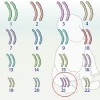Different sides of the same coin; twins and epigenetics
 Most people are aware that monozygotic (identical) twins share the exactly the same DNA, but it might be surprising to know that traits and diseases with genetic components can vary between these twins. In the case of some psychiatric disorders with strong genetic components, there are many pairs of identical twins in which only one twin actually develops the disease. In bipolar disorder for example a monozygotic twin has only a 40%-70% chance of also having bipolar disorder if their twin has been diagnosed. If bipolar disorder really has a strong genetic component, then why isn’t this number 100%?
Most people are aware that monozygotic (identical) twins share the exactly the same DNA, but it might be surprising to know that traits and diseases with genetic components can vary between these twins. In the case of some psychiatric disorders with strong genetic components, there are many pairs of identical twins in which only one twin actually develops the disease. In bipolar disorder for example a monozygotic twin has only a 40%-70% chance of also having bipolar disorder if their twin has been diagnosed. If bipolar disorder really has a strong genetic component, then why isn’t this number 100%?
Of course, we also know that environment can play a strong role in determining a disease outcome. For identical twins in their first environment, the womb, each individual had slight environmental differences the moment the zygote split into two. As identical twins develop, there will always be some environmental differences, many of which are still not fully understood. Before we explain this mystery of differences between identical (or more accurately “semi-identical”) twins as a matter of nature vs. nurture, there is another component that requires consideration.
There are other ways that DNA can be modified which don’t involve changes in DNA sequence (the order of the DNA’s A, C, T, G chemical “spelling”). These modifications often involve enzymes that can, for example, alter how, or if DNA is transcribed into mRNA. One type these DNA modifying enzymes is methyltransferase, which can add methyl modifications to cytosine (C), often resulting in the suppression of a gene. These types of non-sequence based changes are referred to as epigenetic modifications. Taking the sum of all of the epigenetic modifications gives us the term epigenome, the additional heritable information content of the DNA genome.
In a recent study published in the journal Human Molecular Genetics a paper by E.L. Dempster et.al at the Institute of Psychiatry Kings College in London showed that epigenetic DNA modifications between sets of identical twins can vary by as much as 20%. This study is highly significant in its demonstrating why researches will have to go beyond sequencing the DNA genome of patients and start paying more attention to the epigenome. The Kings College study is the first wide-scale study that brings recent technological advances in epigenetic investigation to understanding psychiatric disorder. The study found epigenetic modifications not only in gene regions already known to be involved in disorders like schizophrenia and bipolar disorder, but has revealed new genes that could be potential targets for drugs. Because epigenetic modification involves chemical modification of DNA, aberrant epigenetic modifications can often be targeted by drugs. Hopefully further exploration of the epigenome will yield more clues about these often devastating conditions.
| Print article | This entry was posted by Jason Williams on September 23, 2011 at 1:48 pm, and is filed under G2C Online. Follow any responses to this post through RSS 2.0. You can leave a response or trackback from your own site. |
No comments yet.
No trackbacks yet.
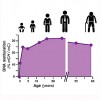
The Epigenetic code and brain development
about 12 years ago - No comments
Epigenetics has been a hot topic in molecular biology for several years and it´s fascinating to see how it is now trending in general news as well. I was reminded of this fact when hearing Fatimah Jackson speak at the American Museum of Natural History´s recent SciCafe. So what is epigenetics? First of all it´s…

When is a clone not a clone? When it’s a mosaic.
about 13 years ago - No comments
For the last decade or so, progressive cancer treatments involved taking samples of tumors, testing the cells to determine the genetic makeup, and then prescribing medicines targeted to specific mutations. There are many benefits to this approach, but it doesn’t always work. It turns out that tumors aren’t uniform; they are mosaics of cells that…
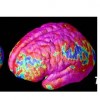
A new superdrug that fights pneumonia, pimples AND schizophrenia? Meet Minocycline.
about 13 years ago - No comments
A cheap drug called Minocycline, which is normally prescribed for pneumonia and acne will be tested in a new trial to reduce the symptoms of psychosis in patients suffering from schizophrenia. Schizophrenia is a mental disorder characterized by a breakdown of thought processes and by poor emotional responsiveness. According to the WHO the disorder affects…
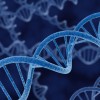
Controlling gene expression through diet
about 14 years ago - No comments
Epigenetics is the study of chemical reactions that control the on and off switch of genes at specific times and the factors influencing them. Environment is a factor that influences epigenetic change which may encompass behavior, stress or diet. The easiest of the three to make observations from is diet. When we think of food,…
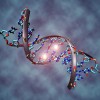
Tag…You’re It!
about 14 years ago - 1 comment
Classic genetics alone is unable to explain the diversity we see within a population of living things. This also cannot explain how identical twins with the same DNA sequences can have differences in their traits and development of disease. First introduced in 1939 by C.H. Waddington, epigenetics is now able to offer some explanation, as…

Bipolar disorder and blood pressure
about 15 years ago - No comments
A recent study from Michigan State University claims to find a link between bipolar depression and hypertension (high blood pressure). Results of the study presented at the American Psychiatric Association’s annual meeting showed that the presence of hypertension may impact the severity of the bipolar patient’s disorder and that a diagnosis of hypertension becomes more…

Childhood Indications of Schizophrenia
about 16 years ago - No comments
A recent 30 Year longitudinal study of individuals from New Zealand has revealed early indications of schizophrenia development later in life. Unlike many mental disorders, schizophrenia usually strikes much later in life (usually in mid to late adolescence) and so parents and patients alike may be unaware that there is a potential problem. In many…
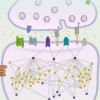
New Technique may Unravel Secrets of Biochemistry
about 16 years ago - No comments
A new paper from David Kleinfeld’s Laboratory at UC San Diego details an exciting new technique for studying biochemistry in the brain. The paper, published in the journal Nature Neuroscience, outlines a novel method for studying cell-to-cell signals that are the basis of neurotransmission. It has significant potential for uncovering the mechanisms by which many…

Heath Ledger’s Joker and the Hollywood Stereotype of Mental Illness
about 16 years ago - No comments
A report released this week by Dr. Peter Byrne of Newham University Hospital in London takes issue with the portrayal of mental health in Hollywood. Dr. Byrne highlights a number of characters, including Heath Ledger’s Joker from the Batman series and Jim Carrey’s character(s) in Me, Myself and Irene, which “represented a new low [for]…

